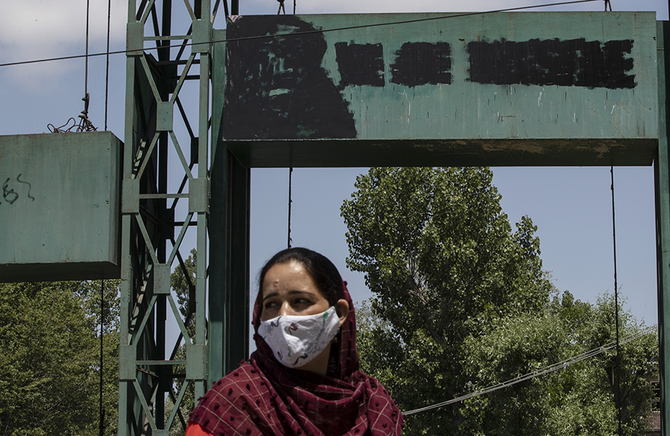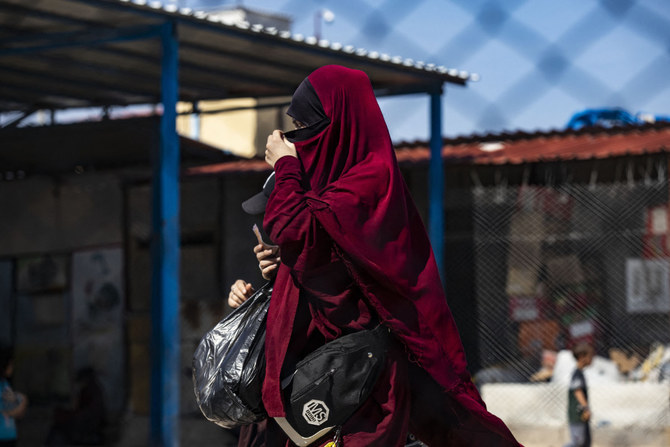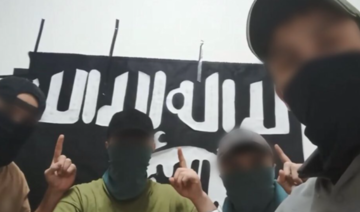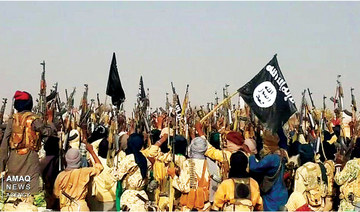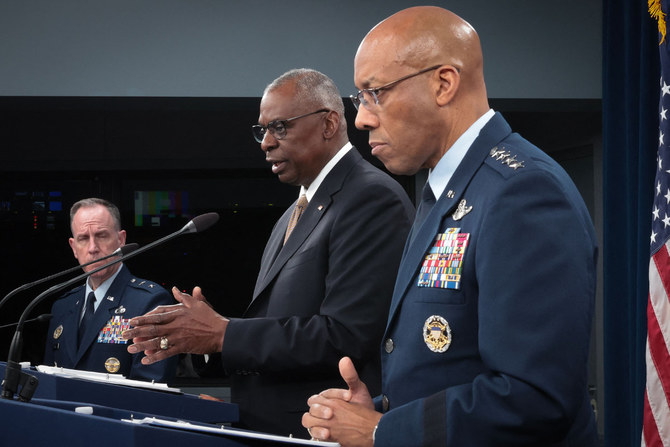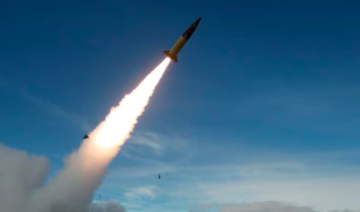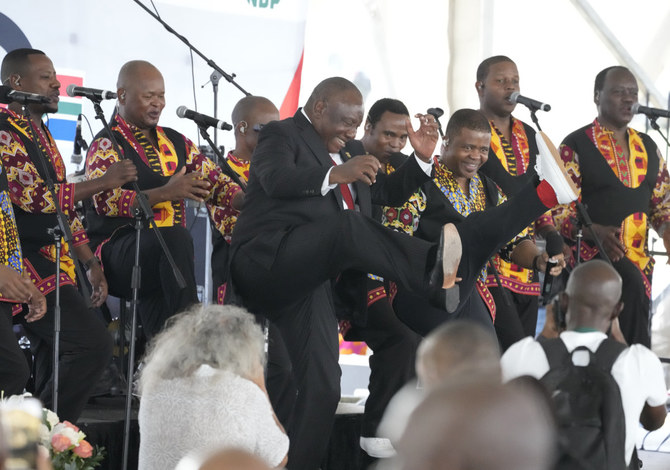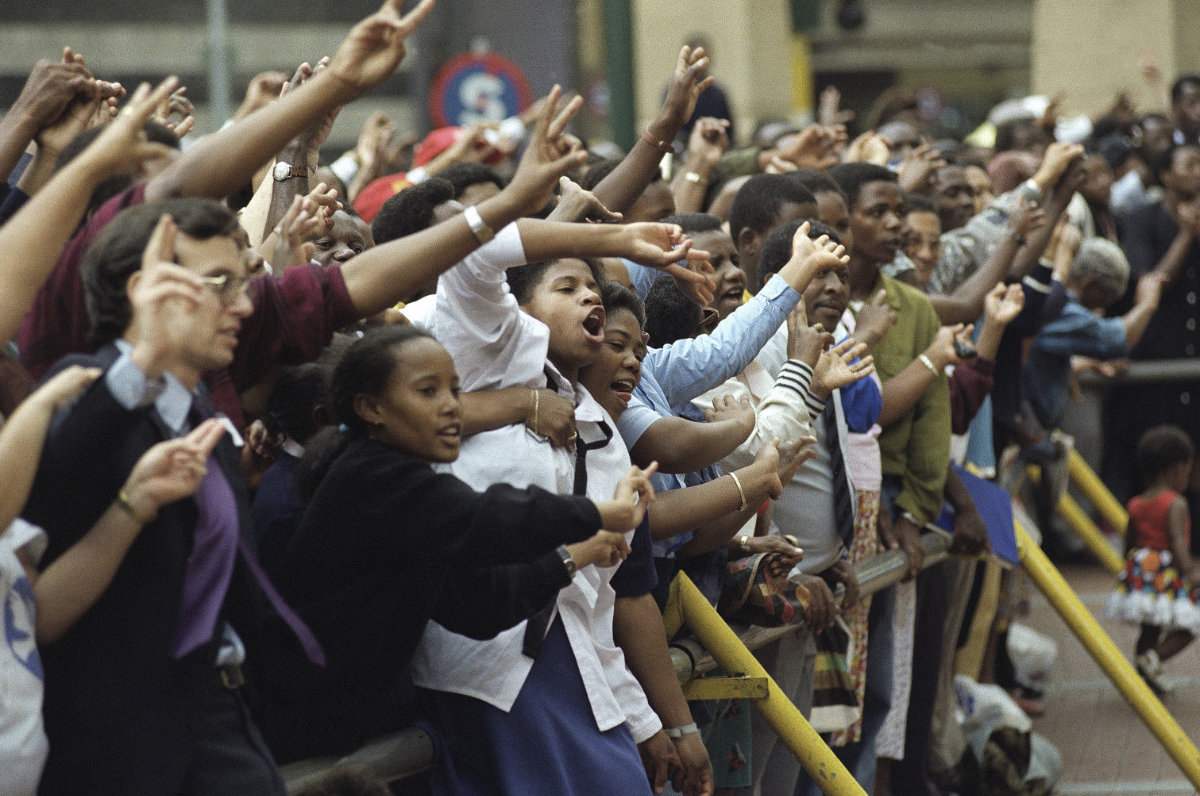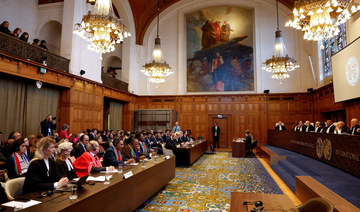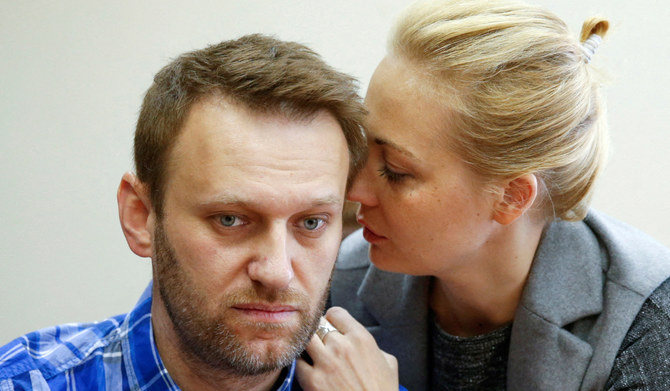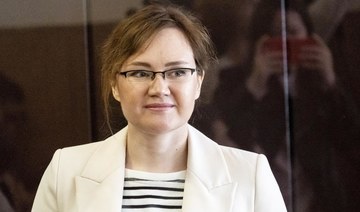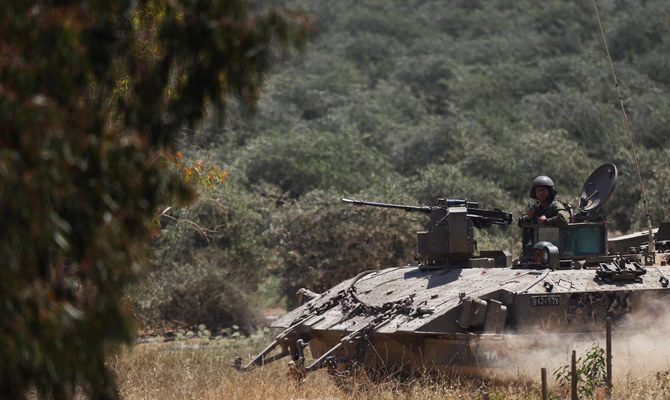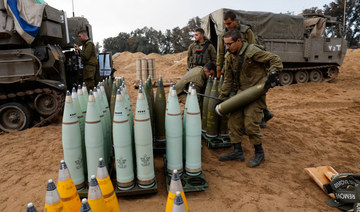NEW DELHI: A day after Jammu and Kashmir police arrested 20 people, including a renowned artist, for organizing a peaceful protest over events in Israel and Gaza, locals expressed resentment at the detentions.
Among those arrested in the capital Srinagar was popular graffiti artist Mudasir Gul, who participated in the protest by drawing a mural of a weeping woman, her head draped in a Palestinian flag, with the words “We Are Palestine” emblazoned across it.
“What is my brother’s crime?” Gul’s younger brother, Badrul Islam, said to Arab News. “When has painting become a crime in Kashmir? Those boys who took part in the protest would have never thought that they would be detained. It was a normal peaceful protest, an expression of anger. Can’t we protest peacefully also?”
Islam said the entire family now fears for Gul’s future.
“We want the police to let us know what they are going to do with my brother. We are worried that he might be implicated in the Public Safety Act (PSA); if that happens, then it will ruin his career and future,” Islam said.
The PSA is a detention law that does not include any provision for bail. Those booked under it often remain behind bars for years.
Islam’s relative and neighbour, Janbaaz Mustafa, was also worried for his 25-year-old brother Dilwaz, who was among those arrested on Saturday.
“He made flags for the protest. Police arrested him because they said that we cannot protest against Israel,” Mustafa told Arab News, adding: “This is how Kashmir is; where no one is allowed to speak, and police can do anything.”
On Friday, police in south Kashmir’s Shopian district also detained a popular religious preacher, Sarjan Barkati, for promoting the Palestinian cause.
Tensions erupted in the Sheikh Jarrah neighbourhood of East Jerusalem last week after Israeli forces tried to evict Palestinian residents.
In a separate incident, Israeli troops also attacked tens of thousands of worshippers praying inside Al-Aqsa Mosque.
Hundreds of Palestinians, including children, were killed and injured during attacks on protesters in the days that followed, with videos of both the incidents going viral on social media, prompting reactions from all over the world.
Former chief minister of Kashmir and leader of the pro-India People’s Democratic Party, Mehbooba Mufti, called the “crackdowns on Kashmiri protesters” paranoia.
“Kashmir has become an open-air prison where even thoughts are being monitored. Anything that might act as a trigger for the anger and resentment that has been brewing among Kashmiris for the past two years is perceived as a threat and thus nipped in the bud,” Mufti told Arab News.
“This explains the paranoia and subsequent crackdown on pro-Palestine peaceful protests in Kashmir,” she added.
When contacted by Arab News on Sunday, Kashmir’s Inspector General of Police Vijay Kumar refused to comment.
However, in a statement on Saturday, he justified the crackdown, reasoning that “some elements might try to leverage the situation” in Kashmir.
“There are elements who are attempting to leverage the unfortunate situation in Palestine to disturb peace and order in the Kashmir valley,” Kumar said, adding that he “wouldn’t allow … public anger to trigger violence, lawlessness and disorder” on Kashmir’s streets.
“Expressing opinions is a freedom but engineering and inciting violence on streets is unlawful,” the statement said.
Kashmir continues to reel under a landmark law introduced by New Delhi in August 2019 when the central government abrogated the limited constitutional autonomy that the Muslim majority state had since 1948.
The entire region was placed under a lockdown for more than six months, with democratic rights curtailed and political activists and leaders placed under house arrest for months, while the internet remained suspended for over a year.
On Sunday, the ruling Bharatiya Janata Party (BJP) justified the crackdown and detention of the 20 Kashmiri men, calling it a “pre-emptive” arrest.
“We want peace between Israel and Palestine. We want all countries to support peace,” Manzoor Bhat, BJP spokesperson in Kashmir, told Arab News.
“There is peace now in Kashmir; there is no news of killings. No one can stop you if you are protesting for Palestinians, this is a democracy,” he continued.
However, he added: “Some elements which are inimical to the peace in Kashmir take advantage of such protests ... to create disturbances where someone is killed, and the atmosphere gets vitiated.
“Police have taken a pre-emptive step, and the arrest is an attempt to preempt the situation from going out of control,” Bhat added.
Experts, however, refused to take the bait, with Srinagar-based political analyst Gowhar Geelani saying that Kashmiris expressing solidarity with Palestinians was nothing new.
“Kashmir has a very long and rich tradition of expressing solidarity with the Palestinians,” he said.
“The Palestinian struggle has been romanticized by Kashmiris in murals, graffiti, posters and videos. In 1967, when the Zionist state annexed East Jerusalem, Srinagar witnessed one of the biggest anti-Israel demonstrations,” Geelani told Arab News.
He added that New Delhi was “scared,” and did not want Kashmiris to express solidarity with Palestinians.
“Perhaps New Delhi believes that for the past two years, it has been successful in normalizing silence and curbing dissent through draconian measures. It believes that the Palestinian plight could be a trigger for large-scale protests in Kashmir, which could eventually turn into pro-independence or pro-Pakistan slogan and sentiment,” he added.
Siddiq Wahid, a Srinagar-based professor, said there was a “nice symmetry between the Indian state and Israel in Kashmir.
“There is a nice symmetry in this that is quite unintended: one of how the people of Palestine and Kashmir and the Israeli and Indian states are aligned with each other,” Wahid told Arab News.
Meanwhile, the New-Delhi based India and Palestinian friendship forum condemned the arrest of the Kashmiris.
“Arresting someone for expressing solidarity with the Palestinians is highly condemnable,” Nadim Khan, president of the forum, told Arab News.
“We are a democracy, and all citizens have a right to express their support to the oppressed people anywhere in the world. The world knows that India is a long-time supporter and friend of Palestine. Supporting Palestine has never been a crime in India. In fact, it’s always encouraged,” he added.



